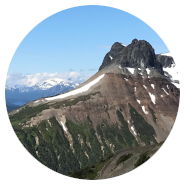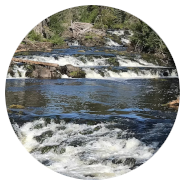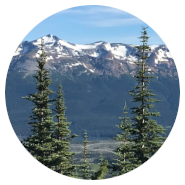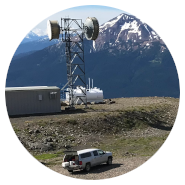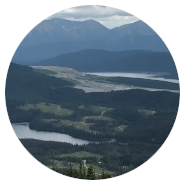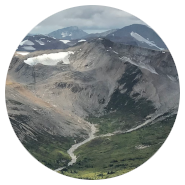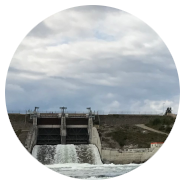Introduction
Welcome to the homepage of the Natural Sciences and Engineering Research Council of Canada / Rio Tinto Industrial Research Chair (NRT-IRC) in Climate Change and Water Security. This major research initiative is led by Dr. Stephen Déry, from the University of Northern British Columbia in Prince George, British Columbia, Canada.
Our research is motivated by recognition that Western Canada including the Nechako Watershed is undergoing rapid climate change. This is altering weather patterns, in turn affecting the volume, timing, type and distribution of precipitation across the region. One particular concern is that these impacts are driving reductions in the volume of seasonal snowpacks and glaciers, which serve as important reservoirs in every major watershed. As a result, river flows are varying more widely, potentially affecting the probabilities of both flooding and drought, and thereby posing substantial risks to water security for communities, industry and natural ecosystems.
This program was established with financial support from the Natural Sciences and Engineering Research Council of Canada and Rio Tinto Canada, together with the University of Northern British Columbia and the EcoCanada Science Horizons Internship Program, to improve understanding of how natural climate variability, climate change and water-management operations for hydropower generation combine to influence the long-term water security of the Nechako River Watershed in north-western British Columbia.
We invite you to explore these pages to learn more about:
- The Nechako Watershed
- The program's motivation, goals and intended benefits
- The main research themes of our investigation
- The people involved in these studies, and in providing guidance for the program
- Reports, publications and data generated by our research
- Partner organizations and projects related to this program
- The Tahtsa Ranges Atmospheric River Experiment (TRARE) field campaign
- The Monitoring Extreme Climate and Hydrometeorological Events (MECHE) observatory
Working on traditional First Nations territories across the Nechako Watershed in a scientific context is a humbling and deeply appreciated privilege. The opportunity to work hand-in-hand with Indigenous communities is a gift for which we are sincerely grateful. This collaboration not only enriches scientific understanding but also fosters mutual respect, knowledge and cultural exchanges. We are grateful for the trust and partnership extended to us, and we strive to approach this work with the utmost gratitude and responsibility. We respectfully acknowledge that our work takes place within the unceded traditional lands of 15 First Nations: Binche Whut'en, Cheslatta Carrier Nation, Lake Babine Nation, Lheildli T'enneh, Nadleh-Whut'en, Nak'azdli Whut'en, Nee-Tahi-Buhn Indian Band, Saik'uz, Skin Tyee Band, Stellat'en, Takla Lake, Tl'azt'en, Ts'il Kaz Koh (Burns Lake Band), Wet'suwet'en First Nation and Yekooche First Nation.

